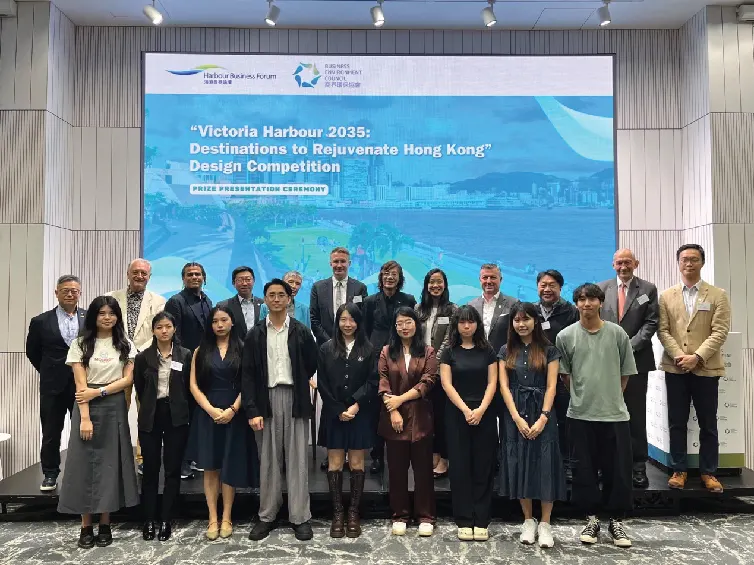We're moving! This site will be relocating to goingto.university in 2026. Please update your bookmarks to the new address.

The Hong Kong Polytechnic University School of Design (PolyU Design)

The article explores a relatively new concept in modern careers called portfolio careers, why this idea is so resonating with young professionals, and sheds new light on why you should consider a postgraduate education in design.
Over the past decade, one of the biggest changes in work has been the widespread adoption of remote work and the rise of the slashie culture. Both are accelerated by technology and fanned by the COVID-19 pandemic. Behind the changing face of work is change out of necessity: our society and businesses live in a time of flux, continuous change, and uncertainties.
Interestingly, the concepts of imagining the fast-moving future workplace, known as the gig economy, appear even earlier. The idea of ‘slash careers’ was first discussed in Marci Albonher’s 2007 book One Person/Multiple Careers: A New Model for Work/Life Success. A similar concept, ‘portfolio career,’ was introduced in the early 1990s by modern management philosopher and behaviour expert Charles Handy.
Both concepts underscore the value of flexibility in the new work culture. They highlight the need for professionals to develop and carry with them portable skillsets as they take on project-based freelance work under multiple professional identities. The concepts find their footing with the late millennials and early Gen Z who have entered the workplace in the past five to ten years. These tech-savvy and better-educated generations are eager to own their career and future. Slash is considered an option of their career.
The idea of a career portfolio resonates with these young professionals’ aspirations, which are no longer singular and linear but more organic and complex.
First, a career portfolio is all-encompassing and includes multiple professional identities managing all sorts of jobs and projects, traditional, alternative, paid, volunteer, serious, casual, etc.
Second, these identities ultimately serve the desire to reach our full potential, or what is called ‘self-actualisation’, the highest level in Maslow’s hierarchy of needs; ambiguity, squiggly detours, and gaps are allowed and tolerated in the exploration process.
Third, the portfolio is to be treated as a living document which is constantly updated – according to the changing of professional identities, experiences, talents, and skillsets.
Fourth, to think about one’s career as a portfolio is to see one’s uniqueness and potential which lies in the intersections and connections of different domains within it. In systems thinking, what is more important is not the points, but the relationships between the points.
If this were to be a better way to think about career, what have we done right with our recently overhauled Master of Design (MDes) programmes to help young professionals achieve a portfolio career?
The MDes was the first scheme-based, taught postgraduate programme at PolyU when it was founded in 2004, superseding the MA in Design launched in the 1990s. In 2022, the MDes launched a refreshed, all-new curriculum under the new vision to nurture proactive leaders and game-changers for the future industry. In the past two years, our design curriculum has helped our students to:

Gabriella is a PolyU Department of Electrical and Electronic Engineering graduate with a BSc in Internet and Multimedia Technologies. When deciding to pursue further studies in design, she looked no further and chose PolyU’s Master of Design to specialise in design services.
Her active participation in class and extracurricular activities has led to outstanding achievements. She completed a 6-credit industry-partnered service design project with the Hong Kong Airport Authority; she represented PolyU to take part in the ‘Victoria Harbour 2035: Destinations to Rejuvenate Hong Kong’ design competition, where she worked with students from other disciplines to envision ways to improve the quality of life with the city’s harbourfront.
Gabriella has successfully redefined her professional identity and is ready to take on projects in service design. Her career portfolio includes an enriched sample of work from the course, experience working with the service sector, and her network with peers, mentors, jury members and sponsors of the competition.

Daniel is a PolyU School of Design graduate with a BA in Advertising Design. He has over ten years of working experience, focusing on creating graphic design for advertising campaigns.
He worked as a design manager before joining the MDes. Because of the studies, he returned to Hong Kong after working in Shanghai for many years. The MDes has helped him venture from the more conventional graphic design to the more dynamic user-centred experience design.
His capstone project envisions sustainable tourism using the eVTOL technology and AI-driven guides to enhance travel experiences. Through the project, he aimed to promote cultural understanding and contribute to Hong Kong’s and the Greater Bay Area’s low-altitude economy (LAE).
Daniel has successfully elevated his career to a new starting point where he is well-equipped to apply design to create economic value and promote positive values.

The latest articles from study abroad providers and StudyLink.com to hep you on your study abroad journey.
See more articlesRead our key advice article to help you make the best decision for your education and start your International study adventure.

In this article we look at how to approach choosing where in the world you would like to study.

Read StudyLink's suggestions on your first steps when deciding where to study abroad, with helpful tips to make your decision easier.

Find out more about English language tests, your options and what is required as an overseas student.

StudyLink.com take a detailed look into the costs of studying abroad and all the aspects that you should budget for when embarking on your studies.

We answer 10 common questions about applying for a student visa to help make your visa application quick and easy.

Find out more about international student visas for studying abroad, as well as how, where and when to apply for yours.

Find out more about funding and scholarships for international students, and what financial assistance might be available to you.

How to choose a course that fits you? Check our top tips on choosing which course is best for you to help you make an informed decision.
Join the StudyLink email list and never miss a chance to turn your study abroad dreams into reality!
